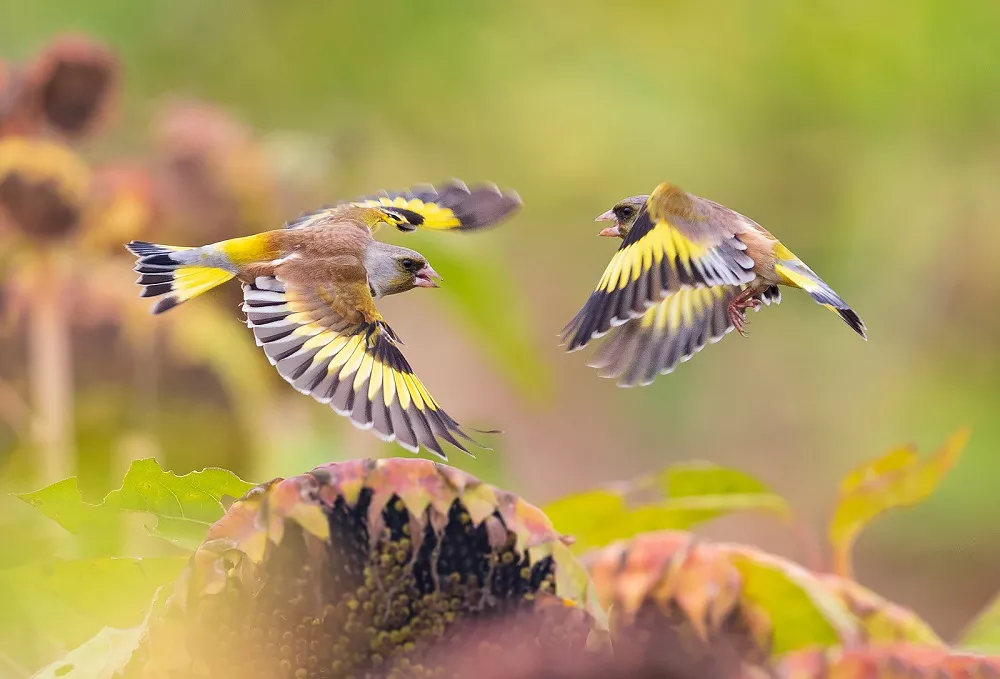Goldfinches, with their vibrant plumage and delightful melodies, enchant bird enthusiasts and bring a touch of beauty to the natural world. As caretakers and admirers of these remarkable birds, it is natural to wonder about their lifespan. In this article, we delve into the longevity of goldfinches, exploring the factors that influence their lifespan and shedding light on their average life expectancy.
Lifespan of Goldfinches
1. General Range:
Goldfinches, encompassing several species worldwide, generally have a lifespan ranging from 5 to 10 years in the wild. However, individual variations and environmental factors can impact their longevity. With proper care and ideal conditions in captivity, goldfinches can live beyond a decade.
2. Species Variations:
Various species of goldfinches exist, each with its own unique lifespan. The two most prominent species are the American goldfinch (Spinus tristis) and the European goldfinch (Carduelis carduelis).
American Goldfinch: In the wild, American goldfinches typically live for 3 to 6 years. However, with proper care in captivity, they can reach an average lifespan of 6 to 8 years and occasionally even surpass a decade.
European Goldfinch: European goldfinches have a similar lifespan to their American counterparts. In the wild, they typically live for 4 to 7 years, while in captivity, their lifespan can extend to 8 to 10 years or longer.
Factors Affecting Lifespan of Goldfinches
1. Genetics: Genetic factors play a significant role in determining the lifespan of goldfinches. Individual birds may inherit certain genetic traits that impact their overall health and longevity.
2. Environmental Factors: The environment in which goldfinches live greatly influences their lifespan. In captivity, providing a spacious and well-maintained aviary or cage, along with proper nutrition and healthcare, can significantly enhance their lifespan.
3. Diet and Nutrition: A balanced and nutritious diet is essential for the health and longevity of goldfinches. Goldfinches primarily feed on seeds, and a high-quality finch seed mix forms the basis of their diet. Supplementing their diet with fresh vegetables, fruits, and occasional protein-rich treats can contribute to their overall well-being.
4. Veterinary Care: Regular veterinary check-ups, including annual examinations and preventive care, are crucial for the health of goldfinches. These check-ups help identify and address any underlying health issues early on, potentially extending their lifespan.
5. Predation and Environmental Hazards: Predators and environmental hazards pose threats to goldfinches in the wild. Providing appropriate protection and minimizing exposure to potential dangers can help safeguard their lives.
6. Exercise and Mental Stimulation: Goldfinches thrive when provided with opportunities for exercise and mental stimulation. Ample space for flying, access to perches and toys, and a stimulating environment contribute to their overall well-being and potentially extend their lifespan.
Conclusion:
Goldfinches, with their golden plumage and melodious songs, captivate bird enthusiasts around the world. While their lifespan can vary depending on factors such as species, genetics, environment, diet, and care, goldfinches generally live for 5 to 10 years in the wild. However, with proper care, nutrition, and a conducive environment, goldfinches can live beyond a decade in captivity. By understanding the factors that impact their lifespan and providing them with the necessary care and enrichment, we can ensure that these vibrant avian creatures bring joy and beauty to our lives for as long as possible.


 Facebook
Facebook  Instagram
Instagram  Youtube
Youtube 